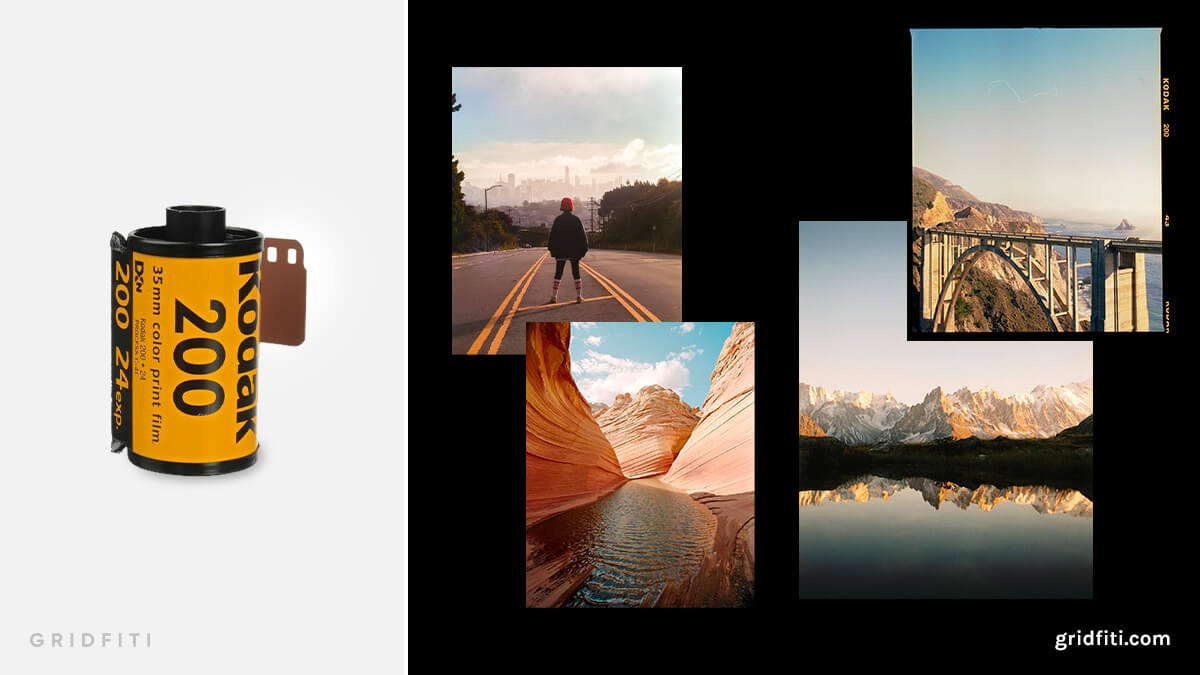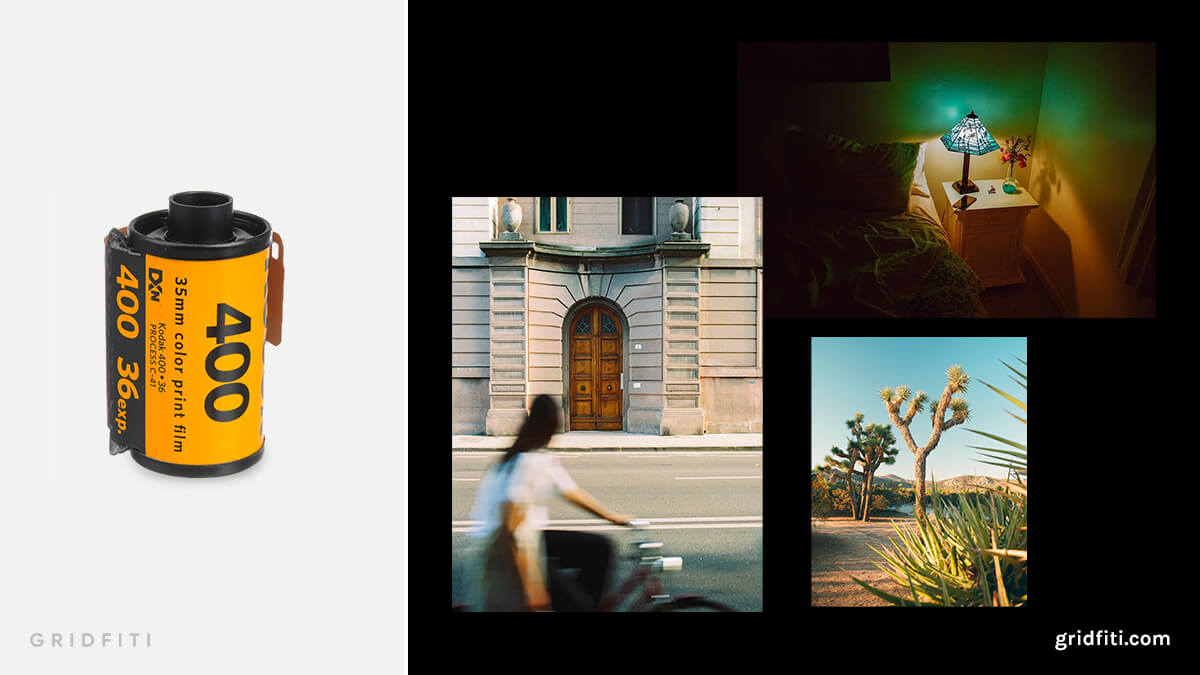Kodak is one of, if not, the most popular film photography brands out there. They’ve got decades of film production under their belt, with film stocks as the famous Portra, Ektar, and Ektachrome.
With the former being more professional grade films, that leaves us with two more accessible film options: Kodak Gold 200 and Kodak Ultramax 400. These are two films with very different color profiles, use cases, and exposure latitudes – but both great options to have in any film photographer’s arsenal.
Not sure which of the two to go with? Dig into our guide on Kodak Gold vs. Ultramax 400 to see which is best for you!
For more tips, check out more of our film photography guides!
Looking to get the film look with your digital photos? For less than the price of buying and developing a single roll of film, our Lightroom preset packs are useable on as many photos as you take.
Kodak Gold 200
Whenever Kodak Gold 200 is brought up in conversation, the name says it all. Accentuated yellows, golds, oranges, and everything in between – this is the film to capture the warmth around us. Often looked at as a worthy Portra alternative, Gold 200 reproduces warm, beautiful tones made for golden hour, portraits in warm lighting, and warm color palettes.
It’s made to be low speed at an ISO of 200, which makes it a great fine grain film option. This comes at the expense of it being hungry for light – needing lots of natural or artificial lighting in order to expose it properly. This low exposure latitude and dynamic range can result in the loss of details in darker settings, but this is a known feature and in fact a preference for photographers with Gold 200.
Between Gold and Ultramax, Gold 200 is definitely the finer grain option which lends itself to a warm color reproduction over Ultramax. If golden tones, fine grain, and sharp shadows are what you’re after, Gold 200 is the pick for you!
If you’re looking to recreate the Kodak Gold look with your digital photos, check out our list of Kodak Gold presets.
Check out Kodak Gold 200:
- Gold 200 35mm Film: Get it on Amazon | Get it on Moment
- Gold 200 Medium Format (120) Film: Get it on Moment
 Photos by @filmwavecherry, @joeforthenguyen, @tristanervin_ and @nacho_zaitsev
Photos by @filmwavecherry, @joeforthenguyen, @tristanervin_ and @nacho_zaitsev

Want to add the Kodak Gold or UltraMax look to your digital photos? Our hand-crafted presets are designed to perfectly emulate the look of these iconic Kodak film stocks:
- Get the Ultimate Kodak Gold Preset Pack
- Get the Ultimate Kodak UltraMax Preset Pack
- Get the Film Preset Bundle [All Film Presets]
Kodak Ultramax 400
With Kodak Ultramax 400, we start to approach a more all-purpose style film that can accommodate a wider variety of settings.
Another great affordable Portra alternative, Ultramax creates beautiful highly-saturated images, yet not overly exaggerated as it remains more true-to-life with its colors. Think of it as an enhancement agent to photos that contain a lot of color, but it doesn’t overdo it.
The color balance with Ultramax makes it versatile for many applications such as portraits, cities, landscapes, and more. The dynamic range on this film is very wide, and it retains great details in both highlights and shadows when metered properly.
Its 400 ISO makes it more flexible with changing lighting conditions, from indoor to outdoor, from sunrise to golden hour.
So, how does Ultramax stack up against Gold? In summary: more color saturation, exposure latitude, and usability in changing settings. Many photographers prefer Gold for its unique warm tones, but if that’s not the be all end all, then Ultramax can be your more extensive film option to shoot with!
Check out Kodak Ultramax 400:
- Ultramax 400 35mm Film: Get it on Amazon | Get it on Moment
 Photos by @ashley__knott, @dean_hinnant and @pietro_favaron
Photos by @ashley__knott, @dean_hinnant and @pietro_favaron
Which of these two films do you prefer: Kodak Gold 200 or Kodak Ultramax 400? Let us know in the comments below!
Gridfiti is supported by its audience – when you buy something using the retail links in our posts, we may earn a small commission at no additional cost to you. Read more about our affiliate disclaimer.